News & Media
Unisa launches initiative to tackle student retention and academic success
Unisa’s Student Retention Unit in the Department of Tuition Support and Facilitation of Learning has launched a new initiative titled "A New Approach to Student Retention and Success", in partnership with Siyaphumelela.
The virtual launch took place via Microsoft Teams, engaging various colleges at the university over three days from 12 to 14 May.
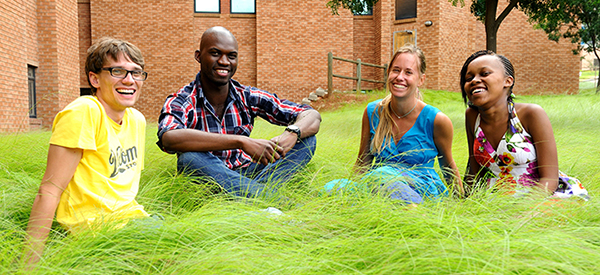
In her opening remarks, Unisa Acting Vice-Principal for Teaching, Learning, Community Engagement and Student Support, Prof Eunice Seekoe, emphasised the value of Siyaphumelela’s contributions to student support.
Ashton Maherry from the South African Institute of Distance Education provided an overview of the Siyaphumelela Network and welcomed Unisa as its newest member. Unisa joins the initiative in its third phase after receiving a Kresge Foundation grant in late 2023 to support the implementation and expansion of student success programmes.
Siyaphumelela now includes 20 public higher education institutions across South Africa. Its primary goal is to foster a student-centred academic culture, ensure equitable student success across demographics, and share evidence-based practices nationwide. Maherry encouraged Unisa stakeholders to visit the Siyaphumelela website for details on the upcoming conference and a call for proposals.
Prof Mary Kilfoil, a former faculty member in Unisa’s Department of English and later Director of Education Innovation at the University of Pretoria, presented the third segment of the launch. Her presentation, "Using Data to Improve Student Success", covered Unisa’s self-evaluation readiness via the Institutional Capacity Assessment Tool (ICAT) and the Capacity Café model.
Kilfoil traced the evolution of Siyaphumelela from its launch in 2015 with five universities (1.0), its expansion to eight universities (2.0), and its current phase with 20 partners (3.0) as of June 2024. She emphasised the importance of cultivating an ecosystem rooted in a student-centred culture.
She explained that the ICAT is a multiple-choice, self-assessment survey capturing staff perceptions and experiences. The findings will inform large-scale discussions through the Capacity Café, enabling critical reflection and forming the basis of a data-driven action plan to boost student retention and success.
* By Obakeng Thulare, Student Success Practitioner, Department of Tuition Support and Facilitation of Learning
Publish date: 2025-06-12 00:00:00.0


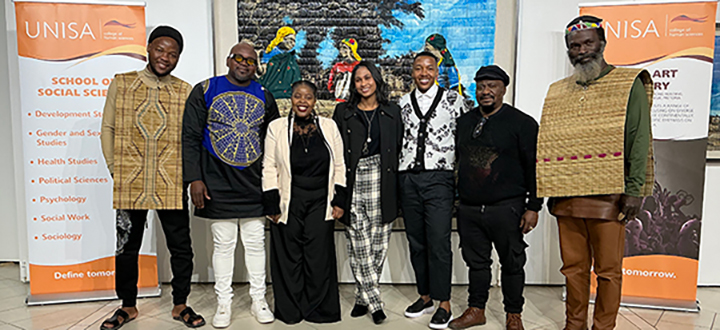 Exhibition explores the nuanced relationship between storytelling, materiality and cultural memory
Exhibition explores the nuanced relationship between storytelling, materiality and cultural memory
 Turning obstacles into knowledge
Turning obstacles into knowledge
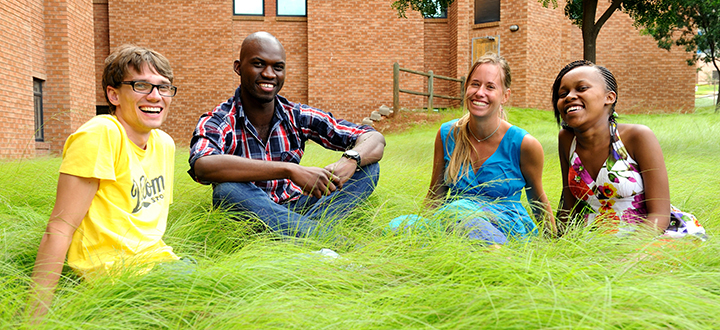 Unisa launches initiative to tackle student retention and academic success
Unisa launches initiative to tackle student retention and academic success
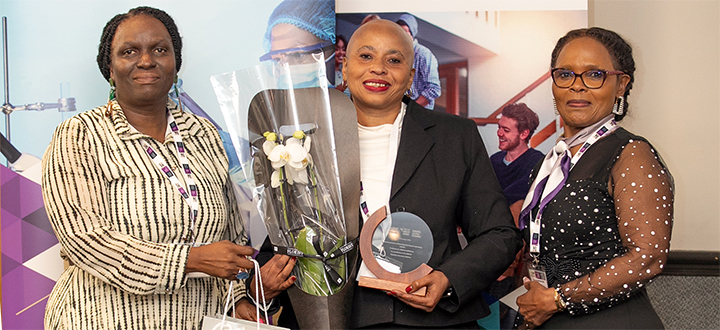 Unisan honoured for excellence in biomedical science and research
Unisan honoured for excellence in biomedical science and research
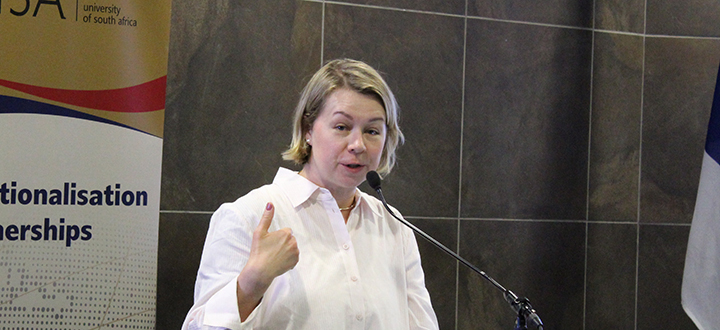 Unisa dialogue examines the enhancement of African agency via BRICS
Unisa dialogue examines the enhancement of African agency via BRICS